Thanks to the dedication and perseverance of AFT 2121 members and allies, we did amazing work this election season, impacting not just City College’s future but all of California. Under the guidance of our member-organizers Kathe Burick and Galina Gerasimova, our members logged more than 400 campaign shifts phonebanking, precinct-walking, doing outreach. This is an extraordinary number for a local of our size, and your hard work made Prop. A in particular a success.
The election results were fairly stunning, not just in San Francisco, but throughout California and beyond. We passed Proposition 30—a measure that literally begins to turn the taxation tides for the first time since Proposition 13 by substantially shifting taxes onto the wealthy and beginning to refund public education—with an eight-point margin. We beat back the attempt to dismantle California labor, defeating Proposition 32 by a twelve-point margin. And Democrats gained two-thirds supermajorities in the State Senate and Assembly, which means that raising revenues and veto-proofing legislation are, at least theoretically, new tools in Sacramento lawmakers’ toolboxes. Nationwide, we saw more good news, from presidential results to more women elected to propositions supporting marriage equality.
An organized labor-community alliance accomplished record fieldwork on Propositions 30 and 32 and helped push these victories in California. Our statewide affiliate, the California Federation of Teachers, played a key role—including our early work in creating the Millionaires Tax, which shifted the governor’s doomed, more regressive measure to a passable Prop. 30 that generates $13 billion more than his original, taxes the wealthy an additional $18 billion, and saves working families at least $4.5 billion. In San Francisco, we engaged some of these same coalitions for Prop. A, most notably with community organizations such as the Chinese Progressive Association and Chinese for Affirmative Action, who worked with Chinatown faculty and students, engaged their memberships, educated voters, and ran a precedent-setting Chinese-language phone bank that reached 9,000 San Francisco voters.
These coalitions are groundbreaking and necessary, as the changing California electorate looks more like student demographics at City College. California voters are younger (7% more 18-29 year olds), poorer (12% more voters are making less than $50,000 a year), and less white (7% more are people of color). I am struck by comparing the national conversation after President Obama’s first victory, which was full of insipid claims about a “post-racial” nation (those claims finally withered under the in-your-faceness of the Tea Party and the Birthers), with the conversation in 2012. In this campaign, the pundits sound a more accurate note about paying attention to the whole of the electorate and all of the nation, including the 99%, the 47%, communities of color, and immigrants. It’s a good moment to reflect on the civic work that we do; when we value and foster critical thinking skills in our students, we value future voters, future leaders, our collective futures.
By 72.9%, San Francisco voters gave City College an overwhelming message: they care about and are committed to our future (as we care about theirs) and they proclaim that we are worth the investment. They will be watching to ensure that City College meets its commitments to students and the workforce that serves them. They want to hear that the College is more effectively planning and running this complex institution—and that it will retain its accreditation, of course.
But voters have by no means demanded a college that shifts its priorities and resources to high-paid employees while downsizing, demoralizing, or denying access to those most vulnerable to the cuts—be they workers or students. Nor did they vote for a College that ignores the voices, commitment, and abilities of those within who offer critical perspectives and ideas for change. Even the FCMAT and ACCJC reports do not necessitate such moves to secure financial stability or CCSF’s future.
Shoring up dwindling revenues for the College and the state’s public education system has been a matter of principle for AFT 2121, and a matter too of protecting members and students and other workers. But while many now recognize that education funding is on its way up from the bottom, here at CCSF the race to downsize and undercut employees continues—the drumbeat marches on at the bargaining table. The District has created a new, artificial deficit in the 2013-14 budget by pulling the $16 million from Prop. A out of the budget.
CCSF faculty have taken huge hits over the last years—well over $14 million since 2010-11. All employees have. Post-elections, we had hoped to move back on track towards a post-cuts world. The District clearly has other ideas: it is now seeking both short-term cuts to address the possible enrollment shortfall and long-term take-backs that will damage workers for years to come and undermine principles the College has long prioritized.
Our contract has faced increasing scrutiny, but the principles it embodies are clear and can withstand such scrutiny, even in the face of FCMAT and the ACCJC. Incoming revenues from Prop. A and Prop. 30 should provide the breathing room to implement smart and measured cost-effective changes. The new revenues are not a cure-all for City College, but they provide the means to a different and better path through the next several years.
We will not apologize for resisting the downsizing of our students’ educations, for saving jobs, for trying to ensure that programs that are of profound benefit to students—particularly our most vulnerable students—continue, even in the face of relentless state cuts. We will not apologize for attempting to sustain employees’ health and well-being at a time when the public sector and public education are under attack.
Yes, City College has the challenge of only months to meet the ACCJC’s recommendations for its “Show Cause” report. AFT 2121 has been and will continue to be fully engaged in this effort to the extent that there is a joint effort to engage in. The College could be using this time to pull together in more positive directions, building transparent processes, engaging in substantive dialogue, and building on this City’s commitment to a City College that will continue to serve San Franciscans for another 75 years.
We keep hearing that City College “misspent” or “mismanaged” by holding on, making too few cuts, serving students in the face of severe budget cuts. But the real travesty would be to have the public step up and say “City College, we support you“ by passing Proposition A—and then losing San Francisco’s trust and commitment by misspending the new funds in areas so far away from students and the classroom that voters wonder why they ever believed in us in the first place. (amesser@aft2121.org)


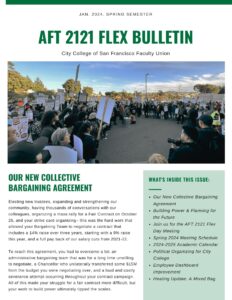
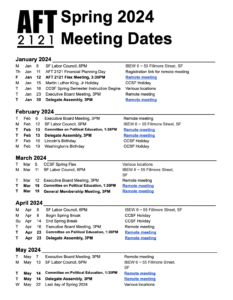
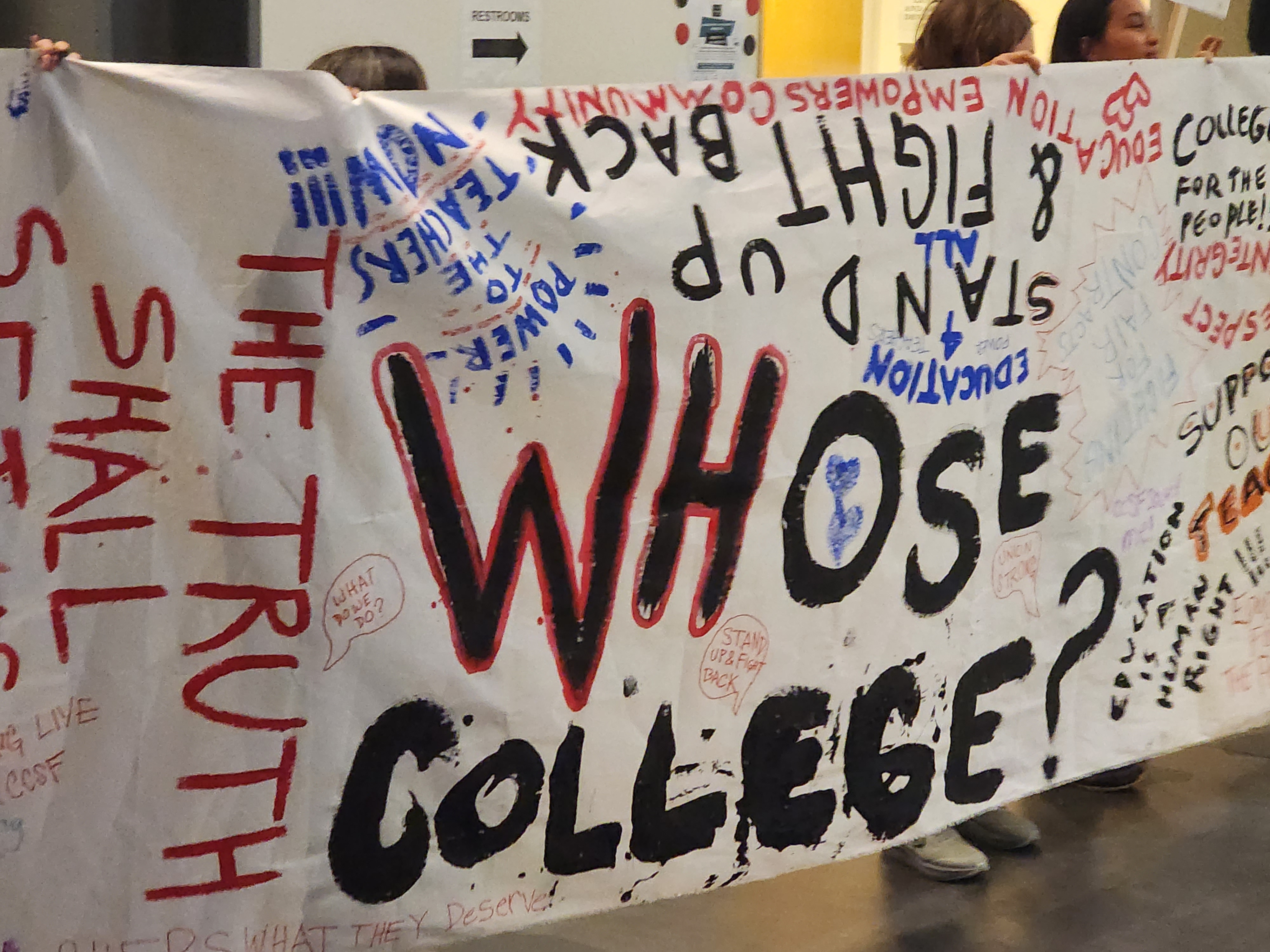
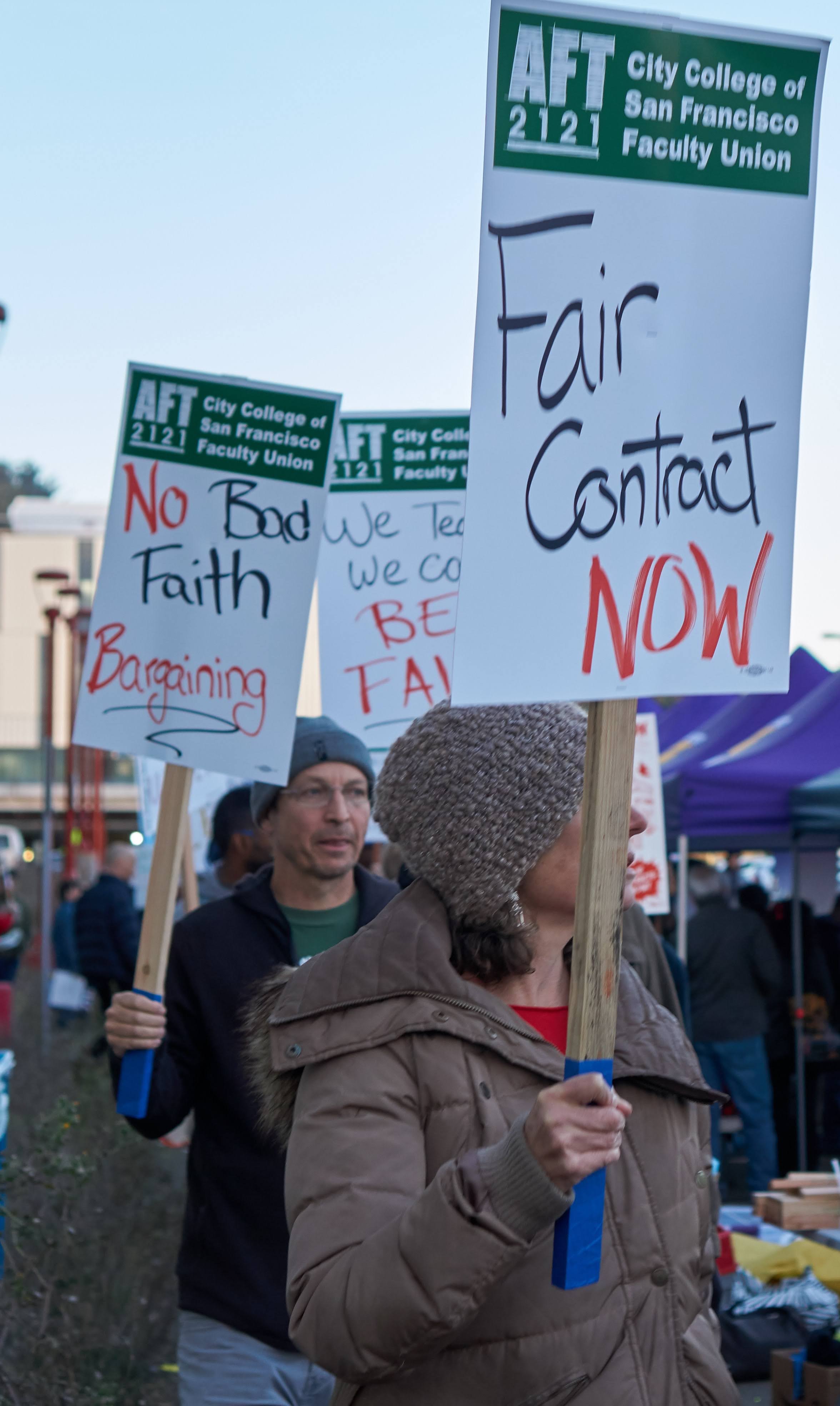
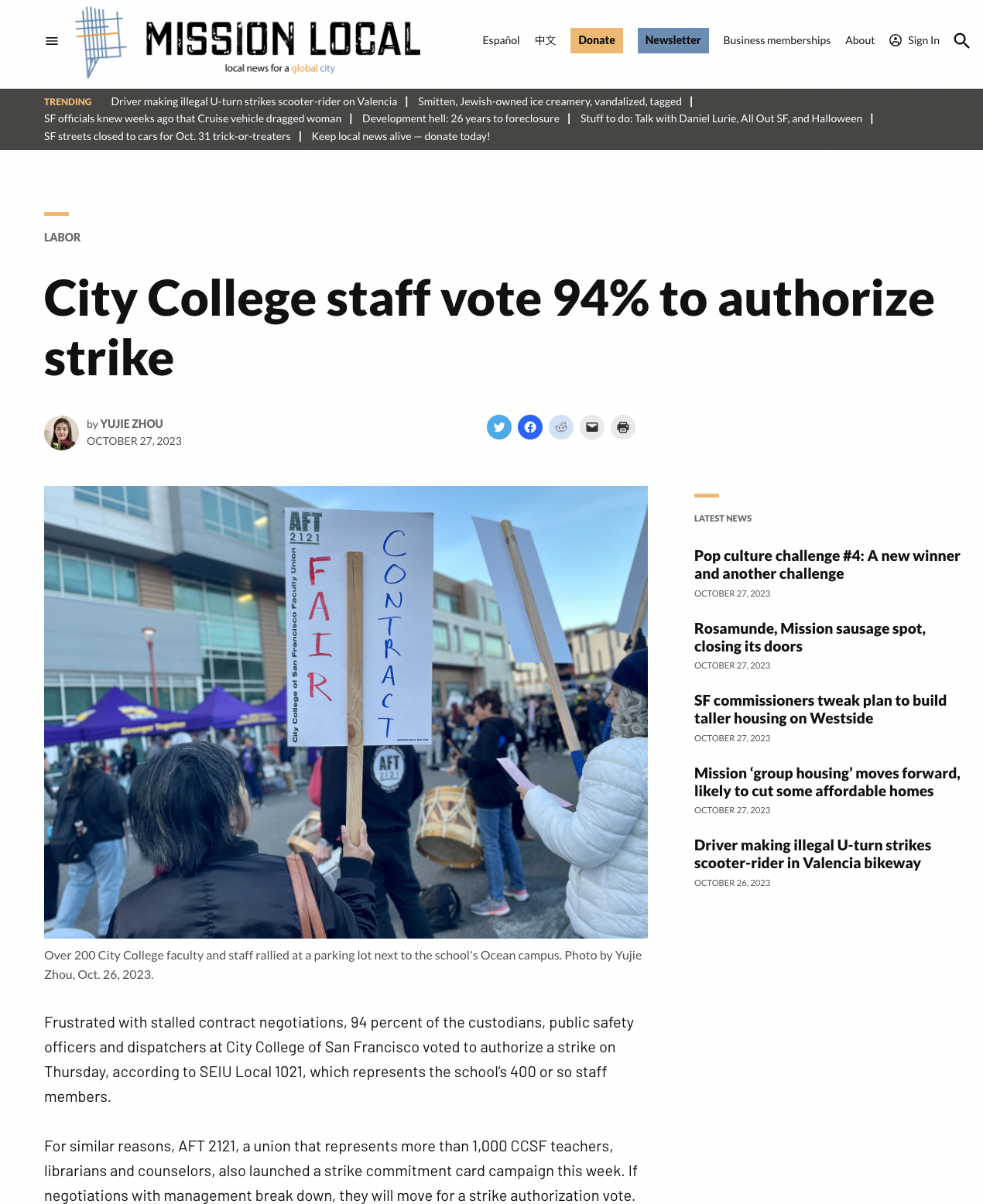
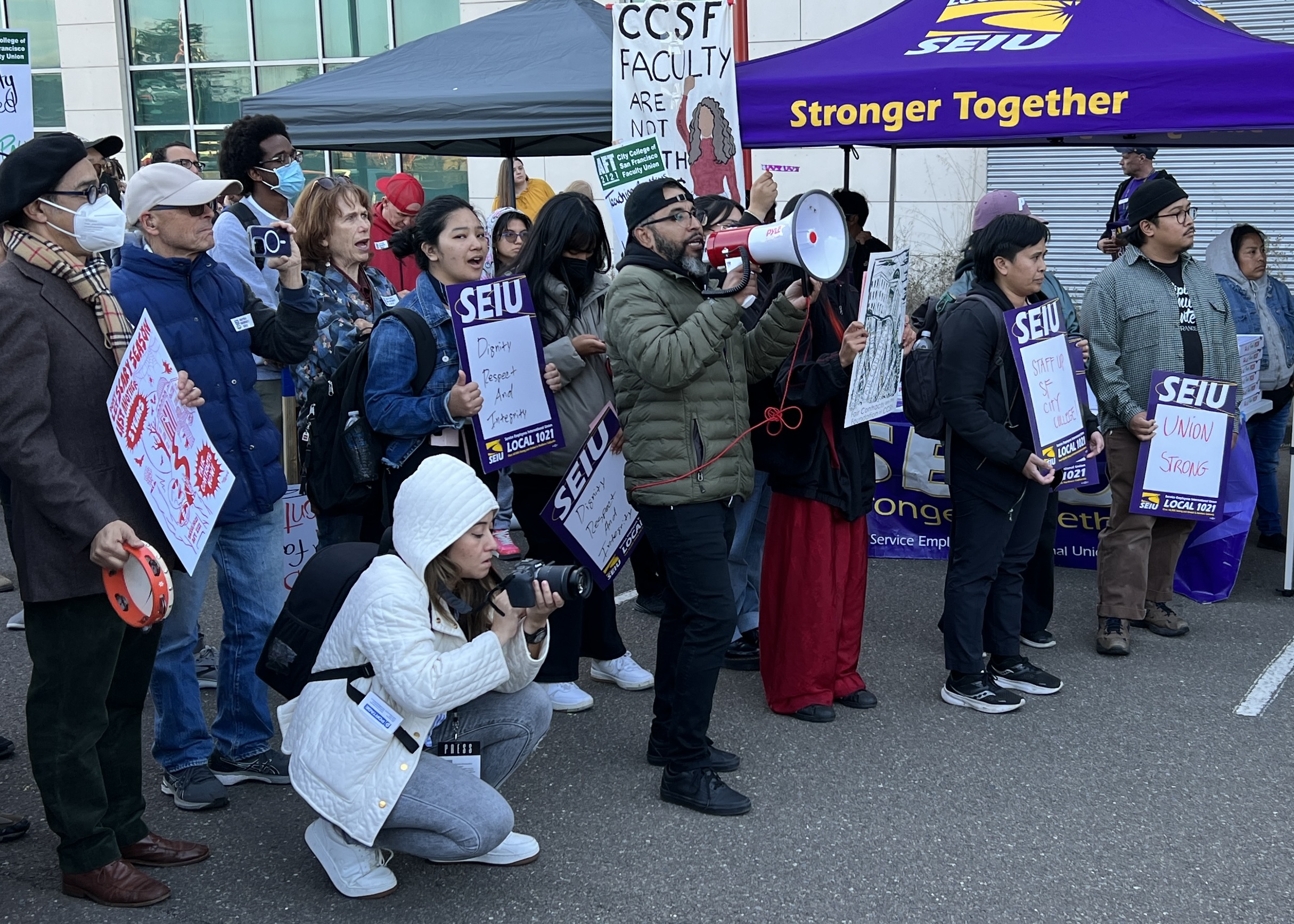
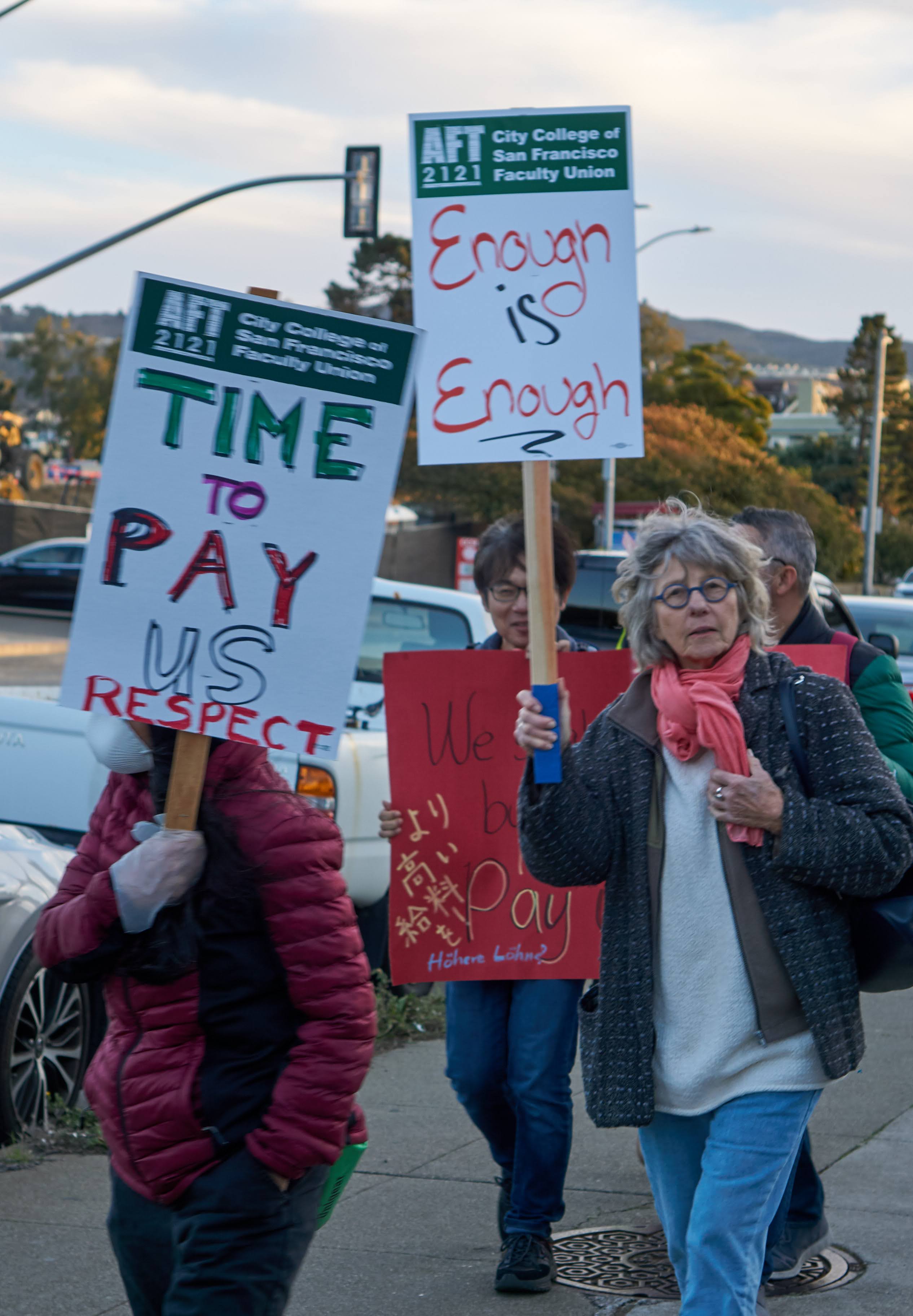
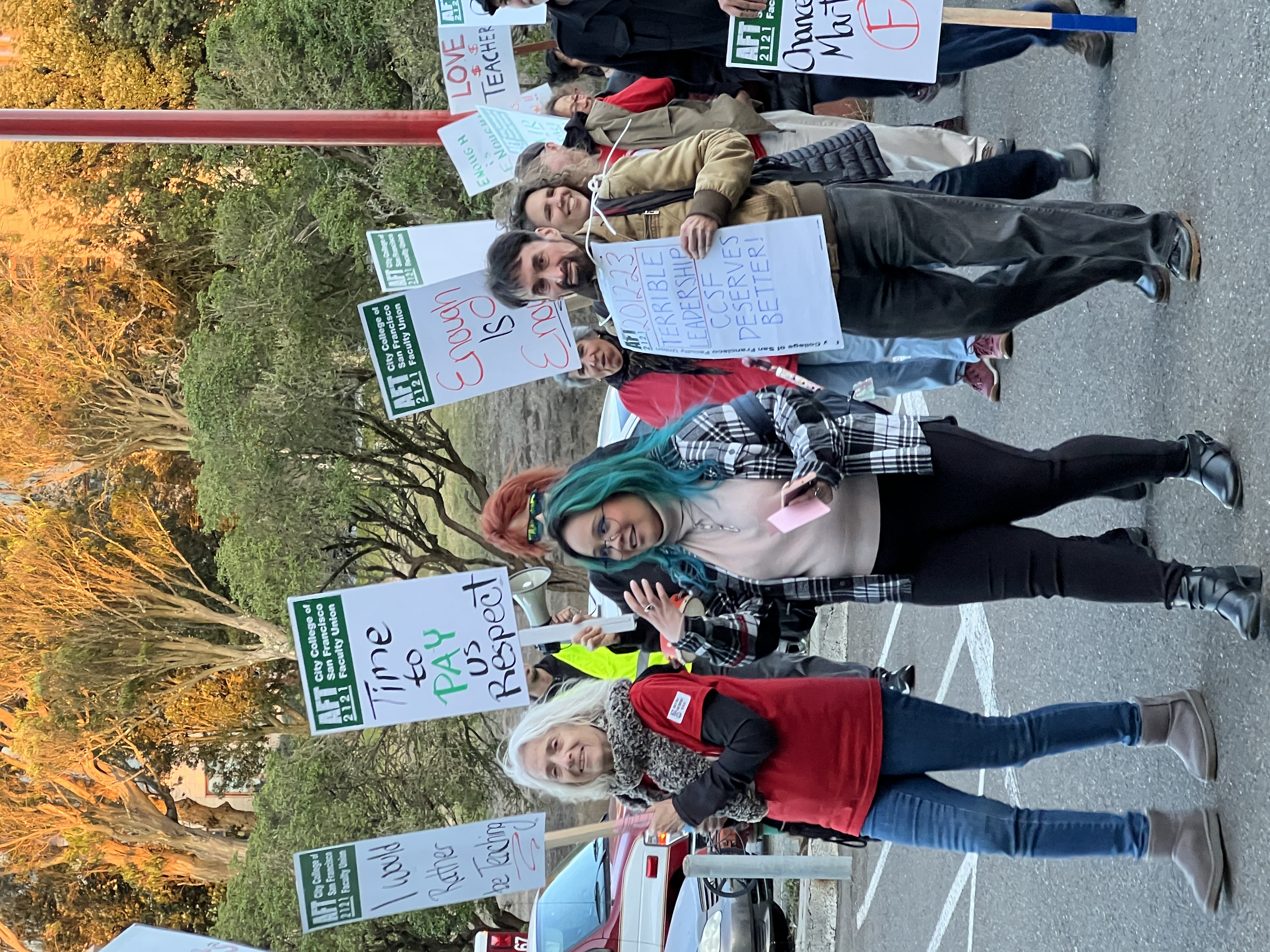
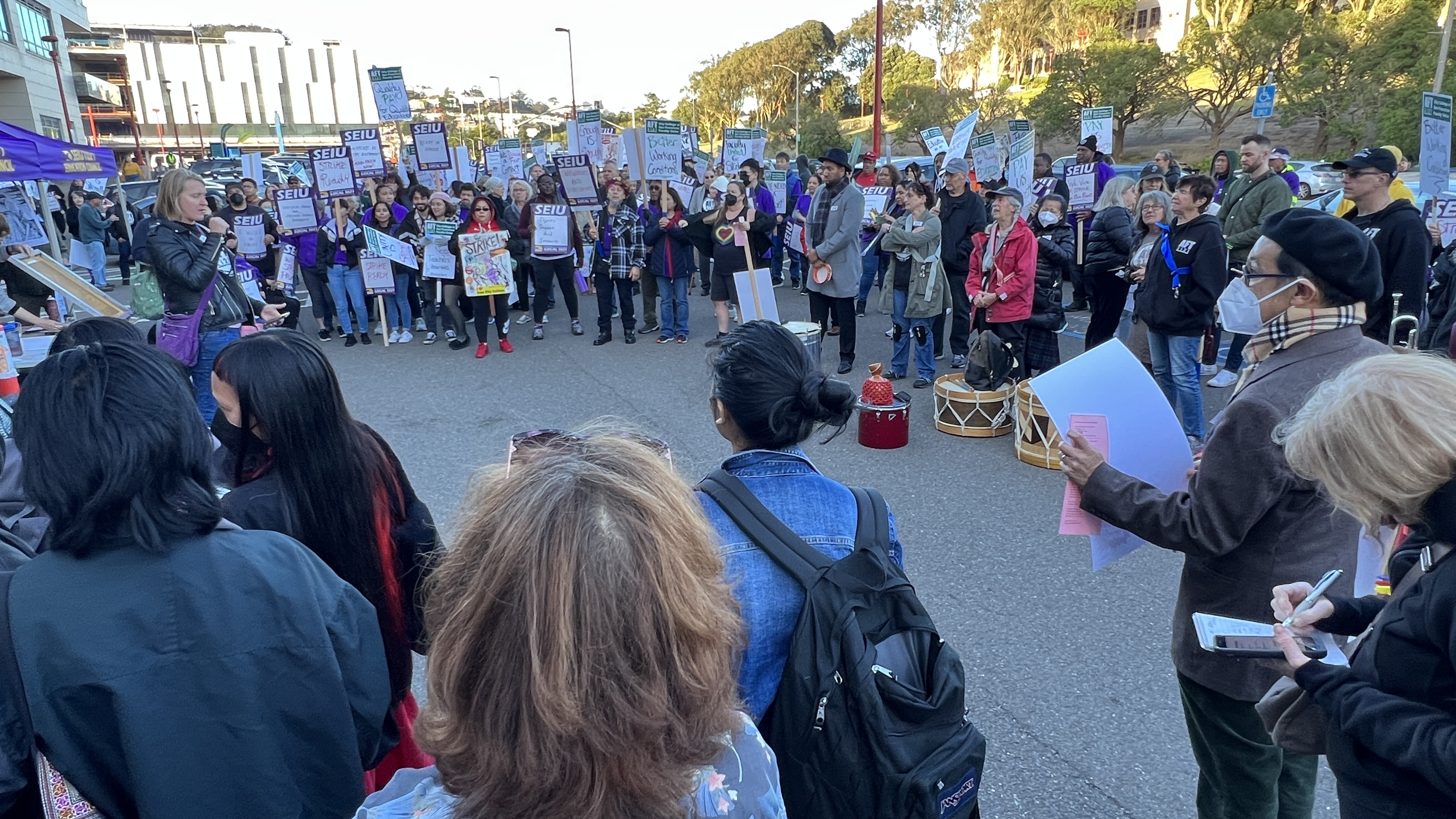
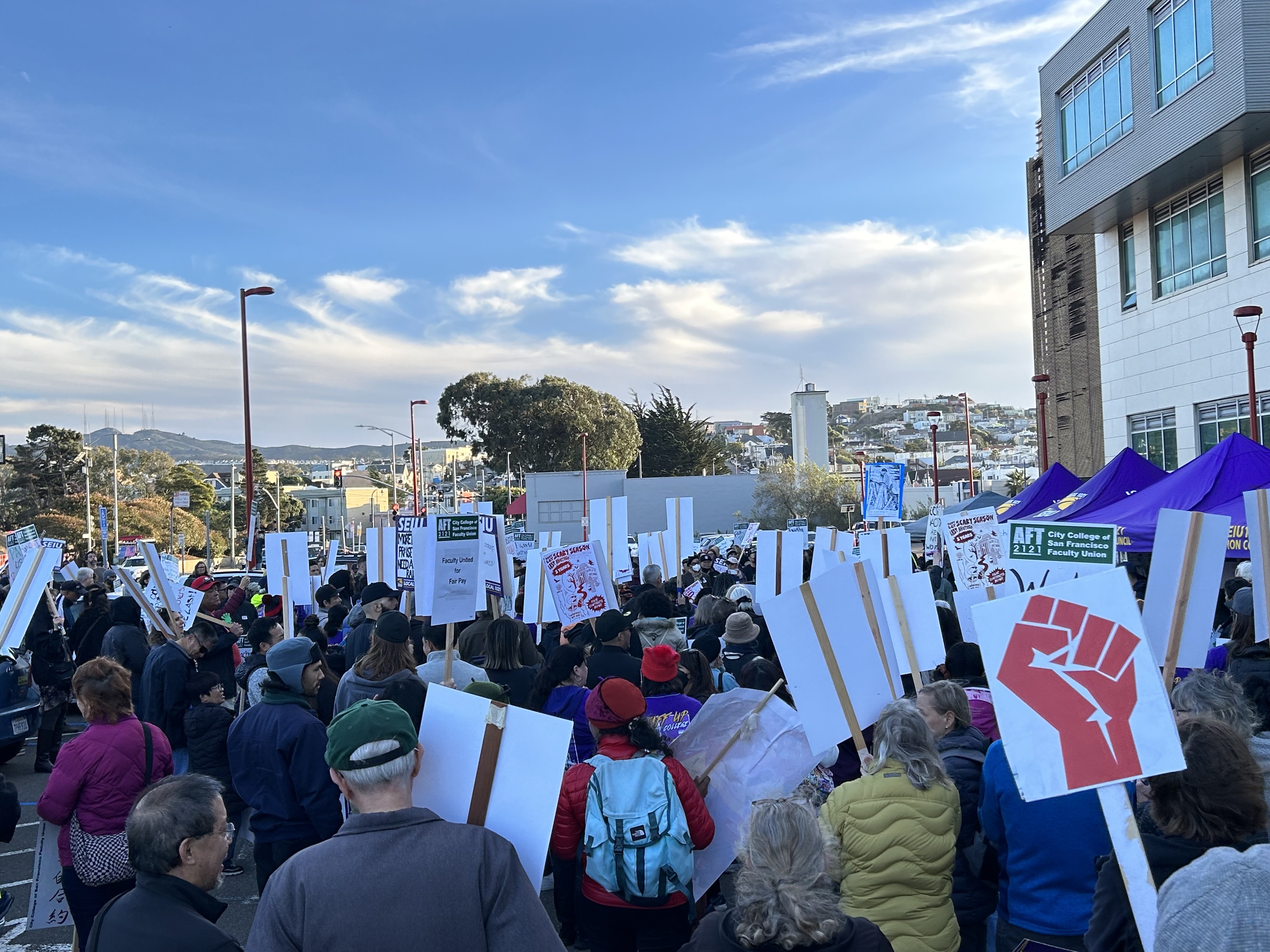
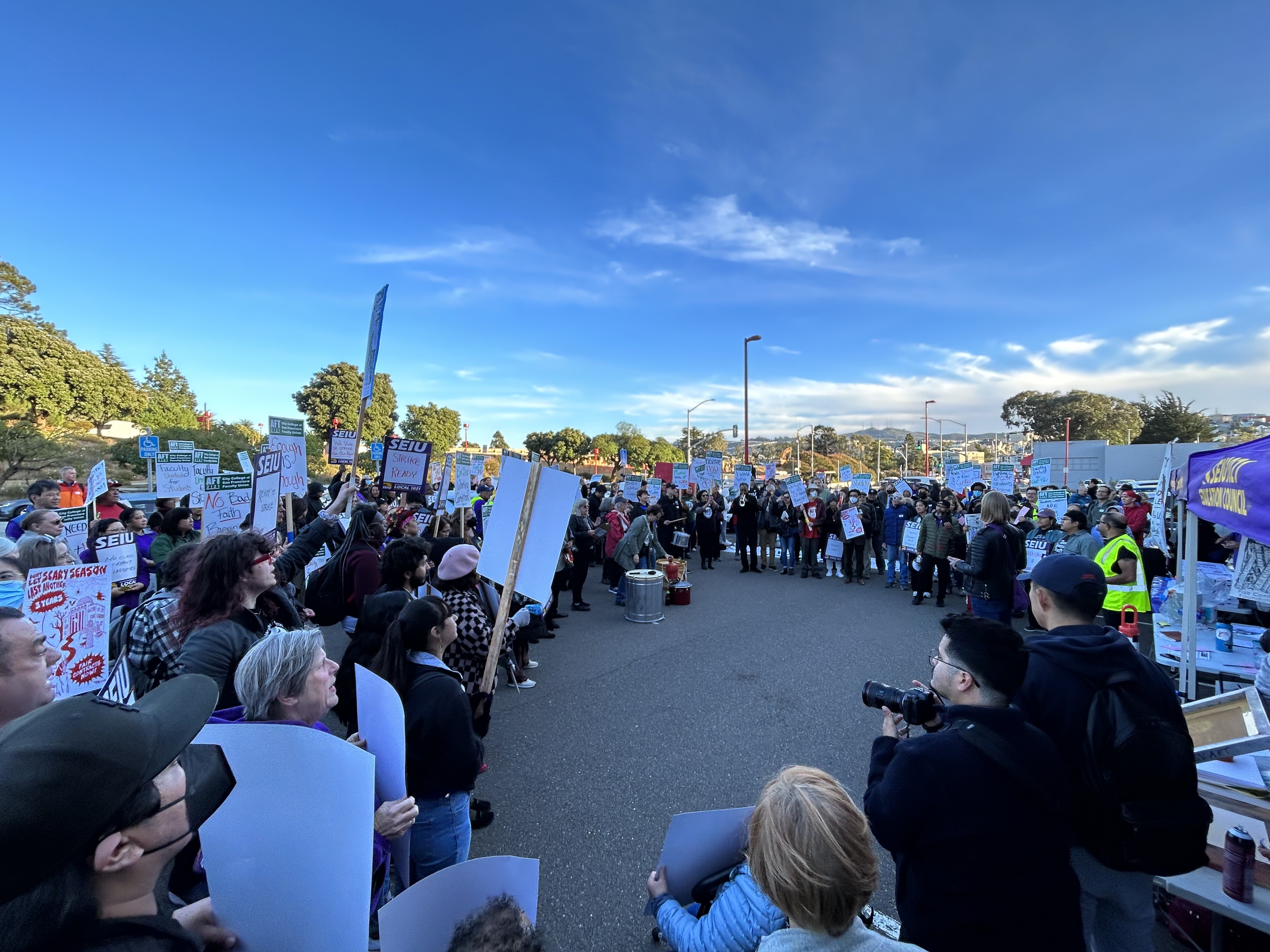
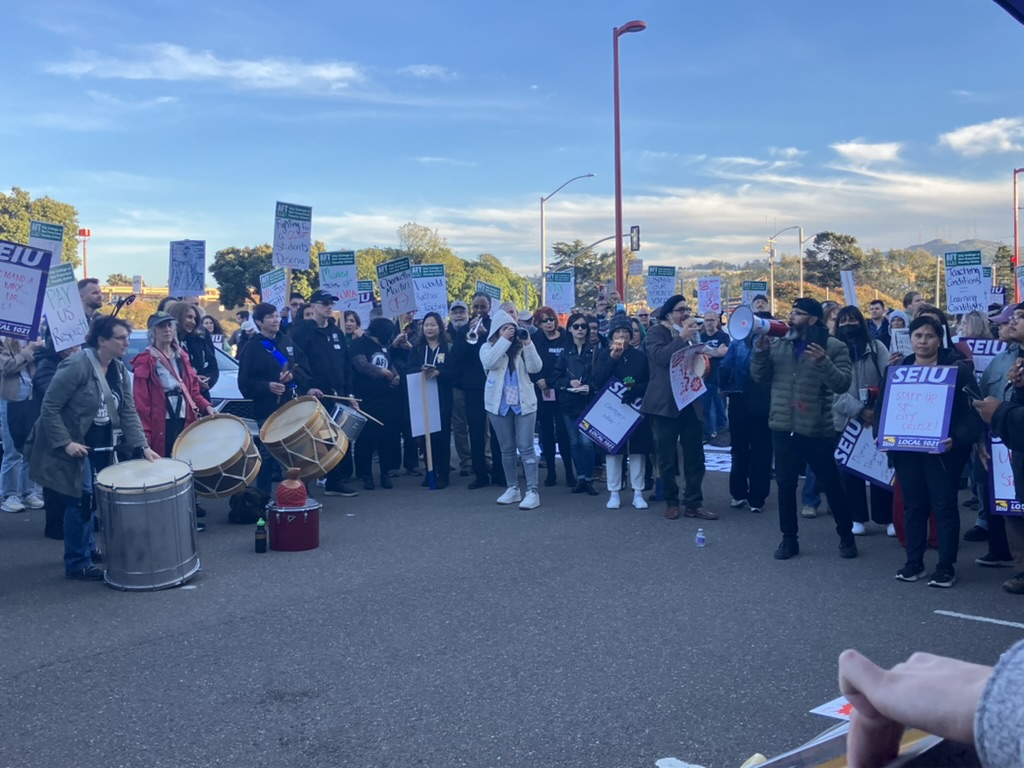
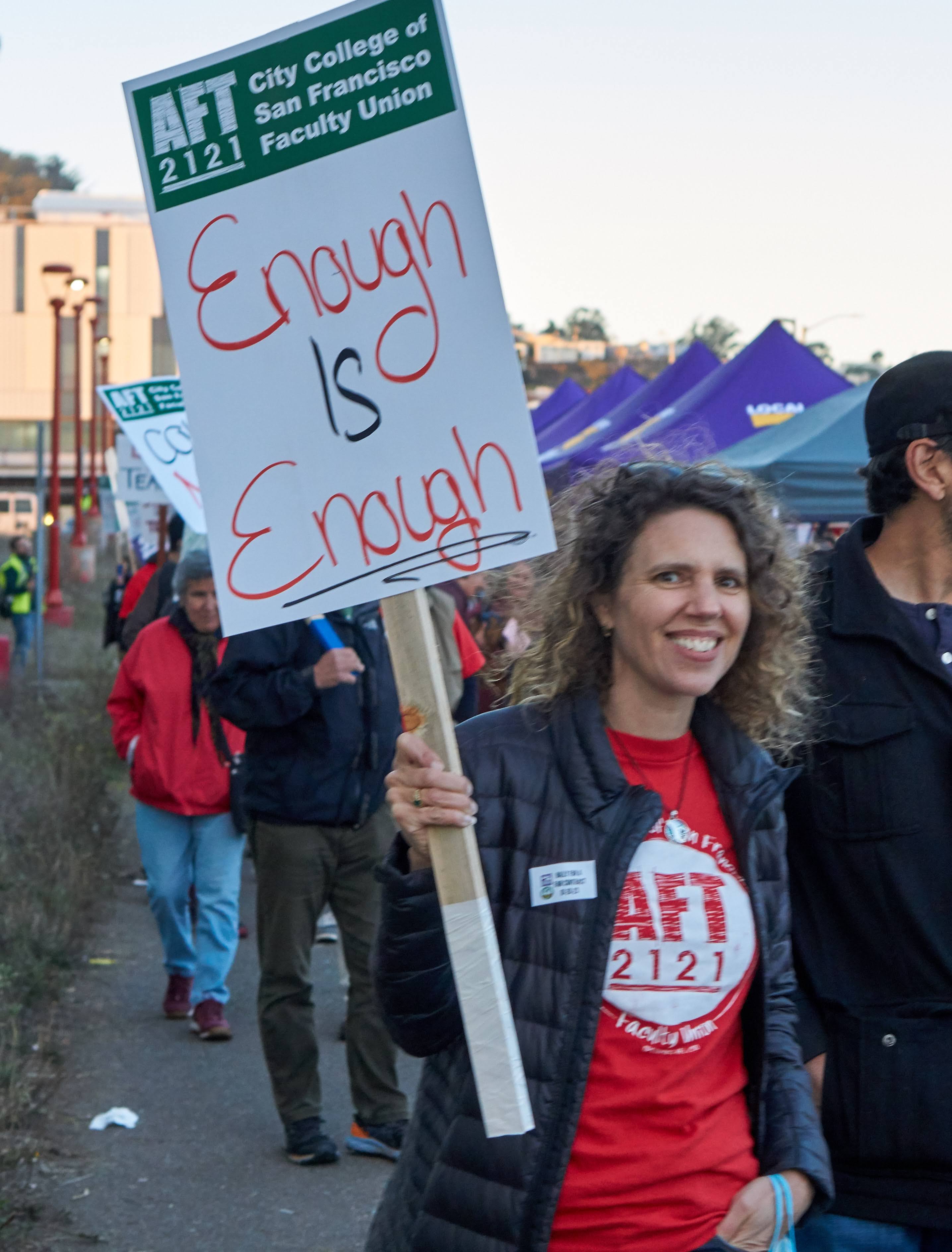

Follow Us!